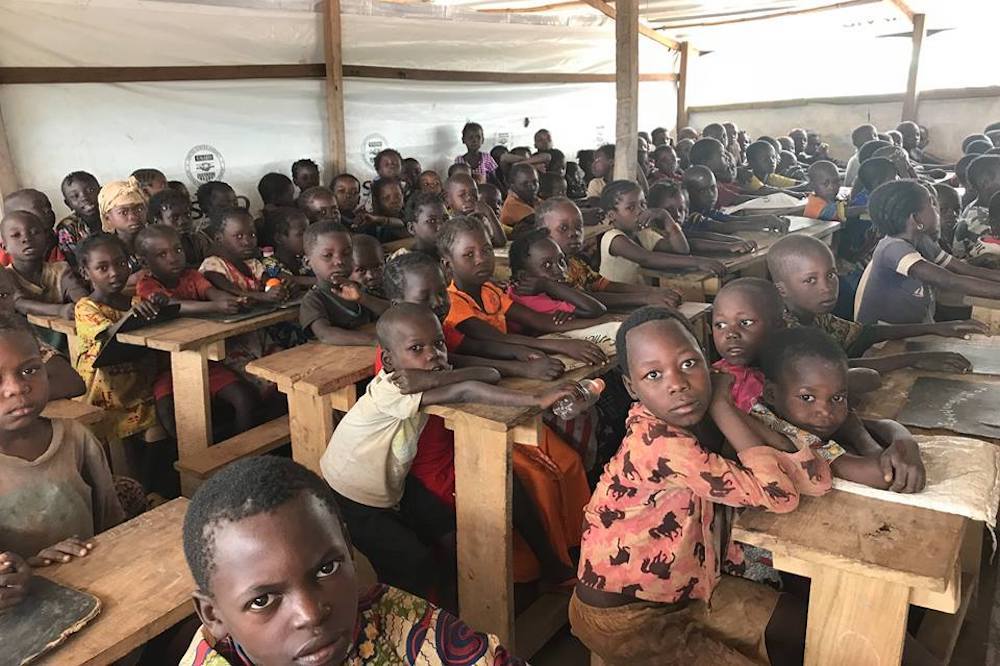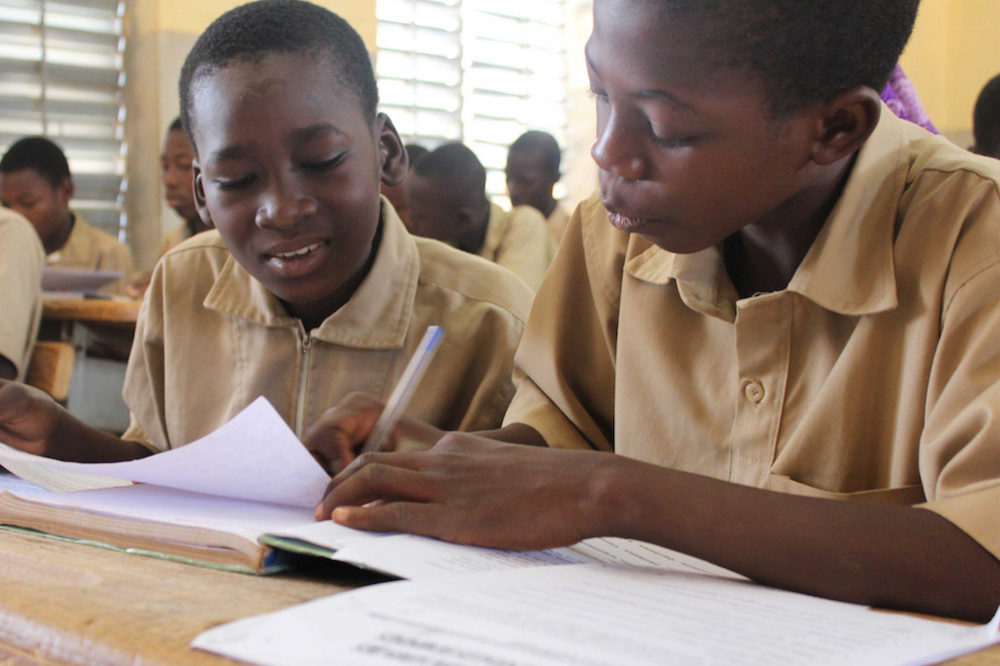
Five things you need to know this week about global education

Children in conflicts, Education Cannot Wait, Education in emergencies, Girls' education, Safe Schools Declaration
Education aid for 900,000 children in Central African Republic
A three-year education programme will reach an estimated 900,000 children – half of them girls – in the Central African Republic, where violence and displacement have left 485,000 children out of school.
The $77 million programme was launched by the government and Education Cannot Wait, the fund set up to deliver education in emergencies.
The new 3-year education programme supported by @EduCannotWait will reach 900K children – half of whom are #girls – & address the violence & displacement that have left nearly half a million #children out of school in Central African Republic. #CARcrisishttps://t.co/eThTqNiKjw pic.twitter.com/9GlZekEiN4
— Education Cannot Wait (@EduCannotWait) February 27, 2019
“By providing girls and boys with safe learning spaces, qualified teachers, learning materials, school meals, counselling support and other services, this bold and comprehensive programme signals a new age of progress in the Central African Republic,” said education minister Aboubakar Moukadas-Noure.
Conflict in the country has resulted in separated children, sexual violence, forced marriage and early pregnancies, and forced recruitment into armed groups. Since 2017, 89 attacks against schools have been reported, 20% of schools remain closed and only 60% of children who are enrolled complete primary school.
The new education programme connects the government, UN organisations, national and international NGOs, and the private sector.
Meghan and Harry promote girls' education in Morocco
The Duchess asks two girls in the @EFAMorocco dorms about what courses they would like to study at university and the careers they would like to pursue. pic.twitter.com/pIxqAIuGCG
— The Duke and Duchess of Cambridge (@KensingtonRoyal) February 24, 2019
The Duke and Duchess of Sussex met schoolgirls and talked about the importance of girls’ education during their royal visit to Morocco this week.
Prince Harry and Meghan chatted to students from the programme Education For All Morocco in the village of Asni. The organisation runs free boarding houses for girls aged 12 to 18 from the High Atlas region who otherwise would have no access to education.
Nine out of 10 girls in the programme pass their exams and get the grades needed for university.
“Wow, that’s impressive!” Meghan told a girl who has ambitions to study astronomy, in an exchange filmed in a dorm room. The couple also visited a classroom where pupils were practising their English.
A quarter of Moroccans aged 15 to 24 are out of work and not in training or education, according to official data for 2016 – a figure which rises to 44% for girls and young women.
The royal trip was also aimed at highlighting initiatives promoting women’s empowerment and the inclusion of people with disabilities.
Violence shuts 1,100 schools in Burkina Faso

Boys at a school in Burkina Faso (DFID / Lindsay Mgbor)
More than 150,000 children are not going to school in Burkina Faso because of the threat of jihadist violence, the education minster has said, warning of a “deteriorating” situation in the West African nation.
More than 1,100 schools have been forced to close or temporarily shut down due to assaults and threats by radical Islamists, said Stanislas Ouaro.
“This year the situation is deteriorating,” he said. “There are schools closed for a few weeks, a few months and others since the beginning of the school year.”
The school year began in October but 5,000 teachers are unable to work, he said. School closures have spread from the country’s conflict-ridden north to the east – 1,135 schools are shut, with 154,233 students prevented from attending classes, half of them girls.
The schoolboy who saved his village
A film about a boy who found an inspiring way to save his education – and his village from famine – is set be seen by a global audience.
The Boy Who Harnessed the Wind tells the true story of William Kamkwamba, who dropped out of school in Malawi after a famine left his family and neighbours without food or income.
William, who was 13, found books in a library that inspired him to build windmills from tractor and bicycle parts. They produced electricity which then pumped water for his village.
The film – written, directed by and starring British actor Chiewetel Ejiofor – is released today in cinemas and will also be shown on Netflix. William returned to school and eventually went to college in the United States.
Protecting girls from attacks on education
Congratulations to @FijiMissionUN ??, 84th country to endorse #SafeSchoolsDeclaration! ?
Safe quality #Education is vital for our #CommonFuture ?
We encourage all @UN member states to follow #Fiji’s example to #MakeSchoolsSafe and #ProtectEducation pic.twitter.com/2nP5NCTrdN
— NorwayUN (@NorwayUN) February 18, 2019
Fiji has become the 84th country to sign the Safe Schools Declaration – an international commitment to take action to protect students, educators, schools and universities from being attacked or occupied by armed forces and groups.
“Fiji’s endorsement is noteworthy given that it is a significant contributor of police, military experts, and troops to UN peacekeeping operations,” said Diya Nijhowne, Executive Director of the Global Coalition to Protect Education from Attack (GCPEA).
Its backing came ahead of the 40th session of the Human Rights Council, where Virginia Gamba – the UN’s Special Representative of the Secretary-General for Children and Armed Conflict – will give her annual report.
GCPEA will host a side-event on the need to better protect women and girls from attacks on education, where it will present research on the impact of attacks on education on women and girls in the Kasai region of the Democratic Republic of Congo.
Schools should be safe places where children can learn free from conflict, violence and fear. But Theirworld’s recent report Safe Schools: The Hidden Crisis said that between 2013 and 2017 there were more than 12,700 attacks on schools, harming more than 21,000 students and educators in at least 70 countries.
More news

